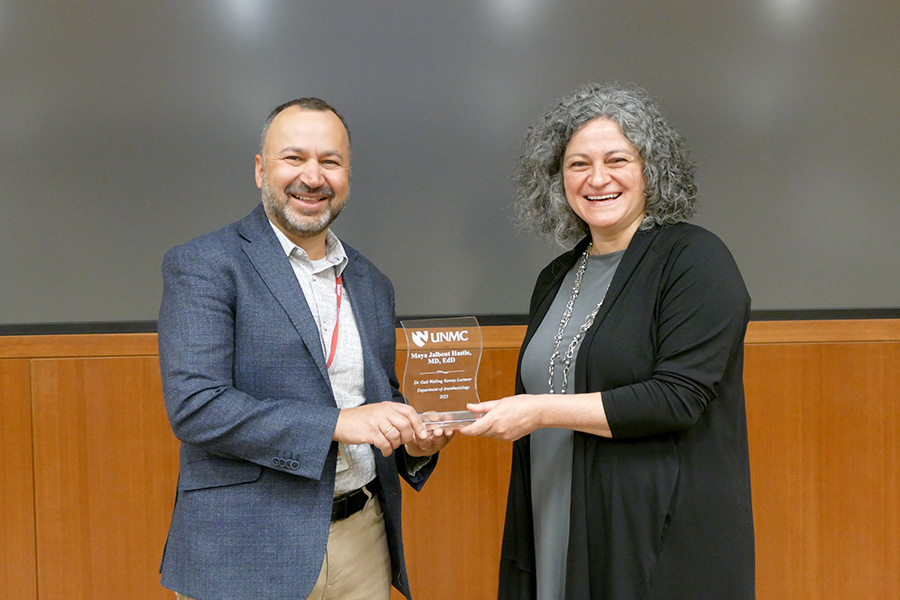The UNMC Department of Anesthesiology hosted Maya Hastie, MD, at the inaugural Dr. Gail Walling Yanney Lectureship on May 17. Dr. Hastie, professor of anesthesiology and cardiac anesthesiologist at Columbia University Irving Medical Center, gave what attendees called an insightful and thought-provoking presentation, titled “Breaking Barriers: Inspiration from Trailblazers.”
The presentation drew from her experience, survey data and the success stories of women who have paved a path forward.
Sasha Shillcutt, MD, vice chair of strategy in the anesthesiology department, was awarded the Dr. Gail Walling Yanney Endowed Professorship in Anesthesiology in 2021 and has established the Dr. Gail Yanney Lectureship to honor the legacy of Dr. Walling Yanney, MD.
The focus of the lectureship series is faculty development, particularly developing women as leaders, and diversity, equity and inclusion efforts.
“Dr. Walling Yanney has been an amazing supporter of the department and health care system,” Dr. Shillcutt said. “She was a trailblazer for women in anesthesiology, and this was an excellent delivery of a difficult topic.”
During her presentation, Dr. Hastie led a discussion about gender equity, diversity and the barriers in academic anesthesiology and concluded with some inspirational ideas on how to move forward.
Dr. Hastie referenced the Association of American Medical Colleges gender equity charts, which include detailed data on the status of women in academic anesthesiology. According to the report, 37% of faculty and only 23% of professors are women.
“If we look at higher leadership, approximately 15% of our current chairs are women,” Dr. Hastie said. “If we continue at this rate, it’s going to take another 20 years to reach equity.”
Dr. Hastie said some of the barriers that face women on a day-to-day basis include structural and environmental barriers, gender bias or harassment and imposter syndrome. She referenced a National Academy of Science survey that reported two out of three women have experienced a form of sexual harassment at some point in their career.
Another barrier women face are gender stereotypes, Dr. Hastie said, adding that stereotypes are not inherently bad but are problematic when they are not confluent.
“We have expectations for what a woman should act like, and we have stereotypes for what leaders should act like, and when those clash, we have a problem,” Dr. Hastie said. “What’s the difference between being assertive and being aggressive? It’s your gender.”
